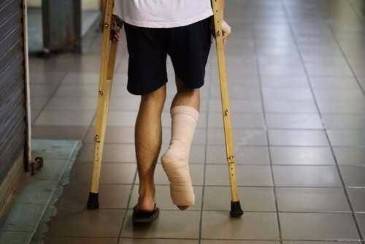Serious personal injury cases alter lives forever. The costs of medical care, damaged property, and lost income can be exorbitant. These examples are all hard costs. But, how does someone quantify the loss of the ability to enjoy and experience life like they did before they were injured, or what they endured in pain, suffering, stress, and anxiety from the injury?
 In theory, the law is supposed to look at every case on its own merits. No two people are the same and no two injuries are the same. Yet, the Colorado legislature decided in 1986 that there should be a limit on how much a person can receive as compensation, no matter their individual circumstances. And so, the cap on non-economic damage was born.
In theory, the law is supposed to look at every case on its own merits. No two people are the same and no two injuries are the same. Yet, the Colorado legislature decided in 1986 that there should be a limit on how much a person can receive as compensation, no matter their individual circumstances. And so, the cap on non-economic damage was born.
Statutory Caps May Prevent You from Recovering Your Full Amount of Damages
There are many types of damages in a personal injury case. Economic damages are those readily quantifiable damages, such as the cost of past and future medical care, the cost of rehabilitation, lost wages and the lost opportunity for future wages, and property damages. These all can be measured and documented by billings, W2s, estimates, and forecasts. These types of damages are not capped, and an injured person can recover the full extent of these types of losses from the person who injured them.
But peoples’ lives are not spelled out on a spreadsheet of itemized costs. Economic damages do not tell the whole story of the impact and loss a serious injury has caused them. Medical bills get paid, but the day-to-day pain of a serious back injury may last a lifetime. It is this type of non-economic loss that stays with people. And it’s this type of loss that the legislature decided to cap.
Non-Economic Damages
Non-economic damages include things like pain and suffering, the loss of enjoyment of life, and mental stress. Imagine a fairly young, healthy man suffers a serious back injury and requires several surgeries. As a consequence of his back surgeries, he cannot ever play golf again, ski, backpack or ride a bike. He loses a part of himself that made him who he was.
This causes him to suffer from depression. Ultimately, he becomes a different person altogether. Regardless of the personal cost he endures, Colorado limits the amount he can recover to $642,180 dollars unless a court finds clear and convincing evidence that he should be entitled to more. And then, the award shall not exceed $1,284,370 dollars. C.R.S. 13-21-102.5 (3)(a).
This invites a question: if someone offered to pay you $642,180 dollars in exchange for taking away the things that make you “you,” would you take it? Would you endure pain, mental stress, discomfort and give up the things you enjoy for the rest of your life? Most people would not. Yet, Colorado law says that is all you can get. It is the most you can recover regardless of the severity of your injury.
This is the effect of damages caps. And, while it affects the individual who did nothing wrong, it protects the insurance companies and corporations from having to pay for the true and lasting extent of the harm their customers and employees cause.
Pringle v. Valdez
That’s the bad news. There is some good news, however. Damages for permanent impairments are not capped. These types of damages are not considered to be non-economic damages. See Pringle v. Valdez; 171 P.3d 624. In this case, the court noted that often, a permanent injury is the most serious and has historically been considered separate and apart from non-economic damages.
The court explained that every person is entitled to a “sound body and mind throughout their life.” Because the wrongdoer took this away, the injured person should be compensated accordingly, separate from the pain and suffering they endured and will endure.
Help When You’re Injured
If you have been seriously injured at the hands of someone else, you need an experienced Colorado Springs personal injury attorney who knows how to evaluate and calculate damages to the fullest extent provided by law. You cannot rely on insurance companies and corporations to do the right thing. They, after all, are the ones who argued for the caps in the first place.
You should contact The Bussey Law Firm, P.C. before you speak to an insurance agent. Tim Bussey and Philip Shadwick have been working in this field for 30 years and have the experience you need to fight for a much more favorable outcome. If you’ve been injured by the negligence of another, call us now at (719) 475-2555.
